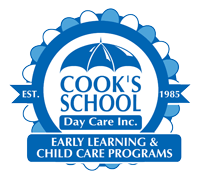Child Care and Early Years Act, 2014
What is the Child Care and Early Years Act?
This legislation replaces the outdated Day Nurseries Act (DNA) to establish new rules governing child care in Ontario.
- The Child Care and Early Years Act, 2014 (CCEYA) came into effect on August 31, 2015
- Many of the new provisions strengthen compliance and health and safety in child care settings, and help parents make informed choices about their options.
- Many of the provisions that existed under the regulations of the Day Nurseries Act are unchanged and will be carried forward under the CCEYA.
To Whom Does the Act Apply?
- Unlicensed child care
- Home child care providers contracted by a licensed agency
- Licensed home child care agencies; and
- Licensed child care centres
For more resources, please see the attached document links,
- Child Care Centre Licensing Manual
- Home Child Care Centre Licensing Manual
- The New Child Care and Early Years Act: What Providers and Parents Need to Know
- Think Feel Act: Lessons from Research about Young Children
- How Does Learning Happen? Ontario’s Pedagogy for the Early Years
- Early Learning for Every Child Today: A Framework for Ontario Early Childhood Settings – ELECT
How Does Learning Happen? Ontario’s Pedagogy for the Early Years
Pedagogy is defined as the understanding of how learning happens and the philosophy and practice that support that understanding of learning.
This document is a professional learning resource for those working in child care and child and family programs. It supports pedagogy and program development in early years settings that is shaped by views about children, the role of educators and families, and the relationships among them. It builds on foundational knowledge about children and is grounded in new research and leading-edge practice from around the world.
How Does Learning Happen? was developed to support Ontario’s renewed vision for the early years. It will help challenge the status quo, inspire critical reflection and transform practices in early years settings. It supports a continuum of learning from early years programs to full-day kindergarten and beyond.
How Does Learning Happen? also describes program expectations, goals for children and questions for reflection to promote learning through collaborative relationships with children, parents, colleagues, and the community. This document will be a catalyst for program integration and supports a common approach to pedagogy across early years settings, and with strong connections to the Full-Day Early Learning Kindergarten Program document.
Early Learning for Every Child Today: A Framework for Ontario Early Childhood Settings – ELECT
In January 2007, the government published Early Learning for Every Child Today: A Framework for Ontario Early Childhood Settings.
This early learning framework, referred to as ELECT,
- Sets out six principles to guide practice in early years settings.
- Provides a continuum of development for children from birth to age eight.
- Is recognized as a foundational document in the early years sector.
- Provides a shared language and common understanding of children’s learning and development for early years professionals as we work together in various early childhood settings.
Many child care operators, child and family programs, municipalities, postsecondary institutions, and other organizations have integrated elements of ELECT into their programs, training, and quality improvement strategies.
ELECT Principles
- Positive experiences in early childhood set the foundation for lifelong learning, behaviour, health, and well-being.
- Partnerships with families and communities are essential.
- Respect for diversity, equity, and inclusion is vital.
- An intentional, planned program supports learning.
- Play and inquiry are learning approaches that capitalize on children’s natural curiosity and exuberance.
- Knowledgeable, responsive, and reflective educators are essential.
